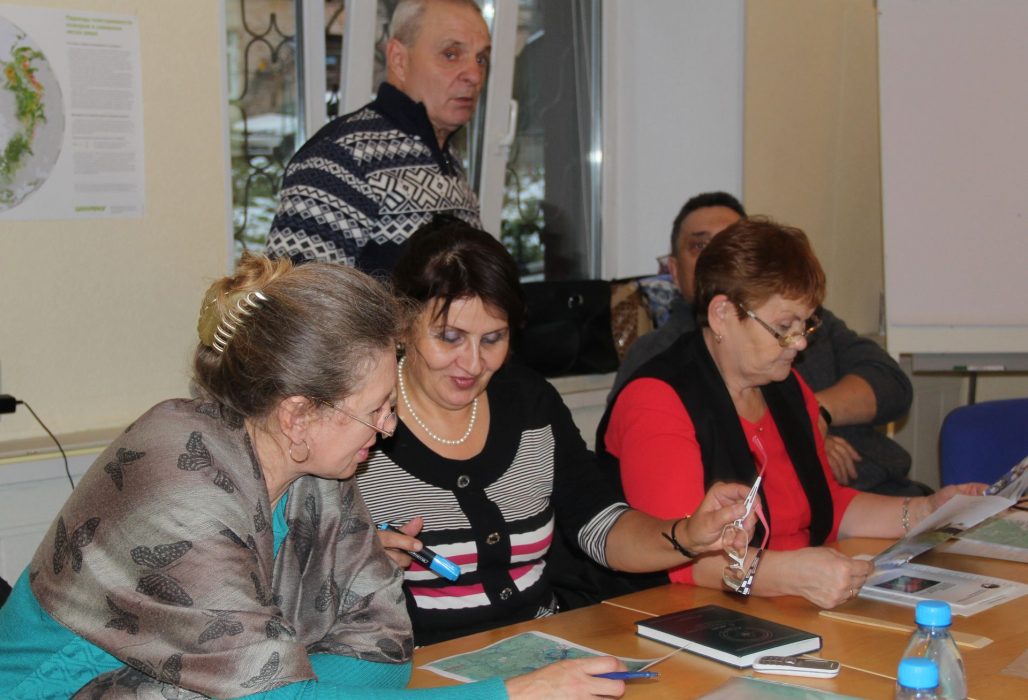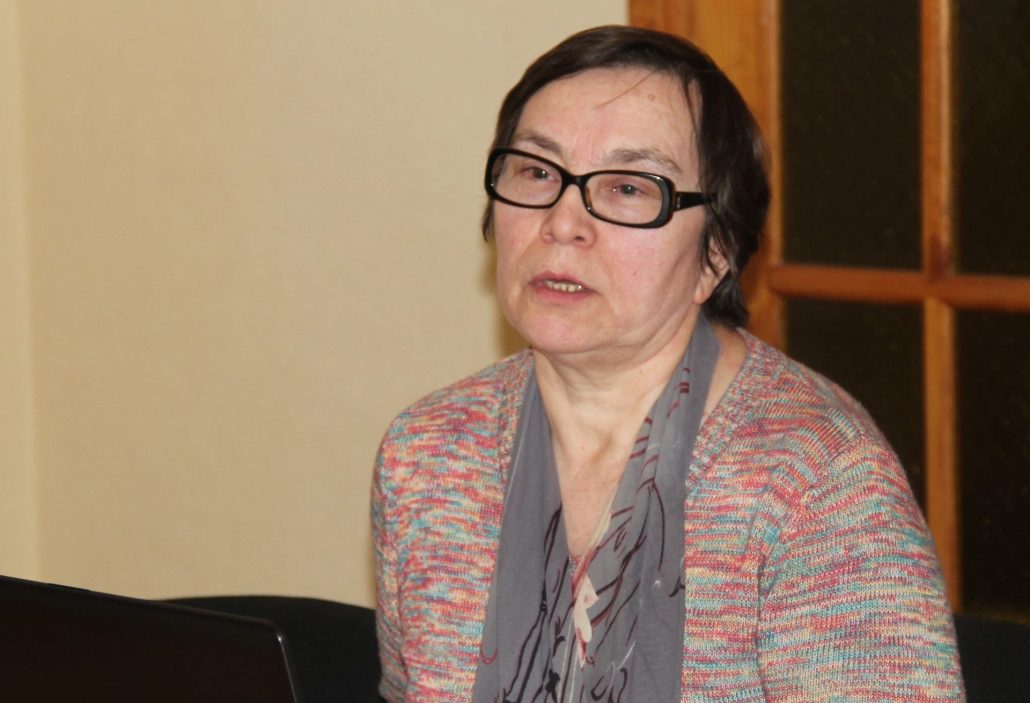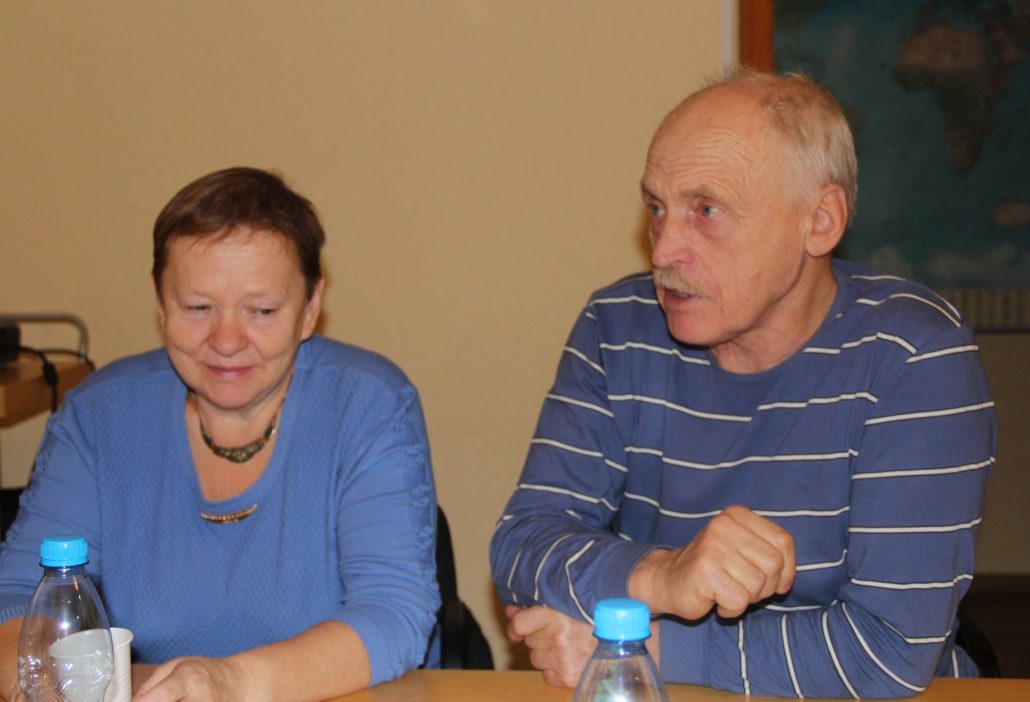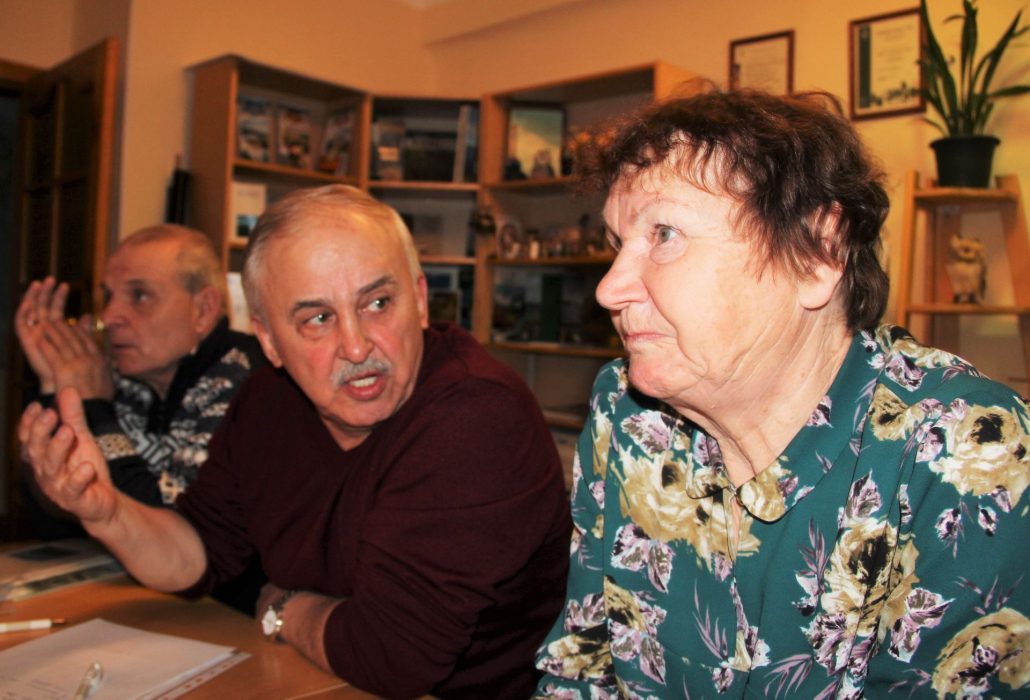Preserving Old Cemeteries and Sites for Traditional Natural Resource Use from Logging Activities
The idea was suggested by participants of the training workshop “FSC Certification as a Mechanism to involve Local Communities in Forest Management” arranged by the Silver Taiga Foundation for Sustainable Development for the group of public activists of Syktyvdin district. The workshop was held in the Foundation’s office on 31 October 2017. The workshop was attended by residents of the villages of Pazhga, Sludka, Zelenets, and the settlements of Yasneg and Mandach.
Foundation’s deputy director Valentina Semyashkina spoke about the FSC certification mechanism with the focus on social aspects.
“FSC certification is of special significance for the residents of Komi and many other forestry regions of Russia. It is explained by the fact that the Russian forestry legislation declares that the population has to participate in forest management, however the Forestry Code and other legal acts fail to describe the mechanisms making such declarations possible. In addition, Russia does not support the rights of the local population for traditional use of natural resources. In particular, traditional hunting grounds, the rights for use of which were inherited from generation to generation, are not envisaged legally. One can surely say that Russia implements the mechanism protecting the rights of small-numbered indigenous peoples, but as you might know, the Komi people is not part of them. So, under such conditions the FSC certification tool seems to be the only real mechanism in Russia that enables the population to protect their rights and interests in the field of traditional use of natural resources,” Valentina Semyashkina explained.
In fact, allocation of HCVF – high conservation value forests – becomes the tool to exercise the traditional rights of the local population. Olga Sazhina, public relations expert of the Foundation, spoke about potential types of social HCVF. The list includes places for collection of mushrooms, berries and wild-growing herb, harvesting of traditional craft materials (birchbark, osier), fishing spots, hunting grounds, areas for harvesting of firewood and construction material for the needs of the locals, sources of potable water (springs, wells), recreational areas, archeological monuments, burying grounds (cemeteries), war monuments, areas of decimation in the repression era, and other sites.
Identification of social HCVF is part of duties of certified logging companies, however, the companies often treat this responsibility formally, and they just send written requests to local self-government authorities, which do not possess any detailed information. As a result, social HCVF are usually established in the areas populated with the people who are interested in their rights and ready to protect them, where both the locals and the enterprise are eager to cooperate.
Albert Loginov, head of the Udorachi indigenous people community shared the social HCVF experience in Udora district at the workshop.
“When the certification mechanism started developing, we established the indigenous people community. Even though the idea was initiated by 6 peoples only, today the organization represents the whole district. The community operates based on the declarative principle, it has a charter, but it is not a legal entity. It took us long to convince Mondi Syktyvkar that we are a legitimate body. We had a long correspondence having generated a heavy pile of letters. Eventually, the Udorachi community and Mondi Syktyvkar concluded an Agreement on cooperation with regard to managing forest sites. The agreement is still valid. The agreement is prolonged each year, unless there are any disputes. There were some conflicts, of course, but the company always met our demands. What is most important is local residents have to be proactive,” A.Loginov highlighted.
As the public activist said, a map of traditional hunting grounds with trappers’ trails was created based on the results of the survey and interviews held in Bolshaya Pyssa. The map shows 84 hunting huts, while the total population of the village is below 400 people. Some villagers have up to 4 huts. Many of them spend up to 1.5 months in the forest, as hunting is one of means of sustenance for them.
The Udorachi indigenous people community is not the only public organization participating in the FSC certification process. Today, there are Public Forest Councils established through the support of the Silver Taiga Foundation in Priluzye, Kortkeros and Udora districts.
The workshop participants, in their turn, shared the information about the conflicts they faced in residential areas. A lot of complaints were given with regard to a logging company operating at the leased forest area near Sludka. According to Tatyana Zhuravlyova, representative of the local administration, no forest is left along the 30 km road from the village of Bolshaya Parma to Shilador. Residents of Sludka, Shilador, Ipatovo, Prokopyevka, Bolshaya Parma, Ust-Pozhega, and Pozyalem have to harvest wood for own needs at the logging plot adjacent to Ust-Vym district border 50 km away from the villages. Even though the company is an FSC certificate holder, it has not coordinated its harvesting plan with the local population.
The population of Sludka is intended to struggle for a more accessible area for the site where they can harvest firewood and construction materials for the needs of the locals. In addition, they suggest creating HCVF at the burying ground of political prisoners who were exiled to the area included in the rural settlement of Sludka. Such grounds were also found in Yasneg.
Today, as was summed up by the workshop participants, it is absence or shortage of information that prevents successful implementation of social aspects of FSC certification. Local residents have no information about a company, while the company lacks information about the locals. There are also certain challenges in determining legitimate public officials in villages. Meanwhile, the efforts of local administrations are not always enough.






